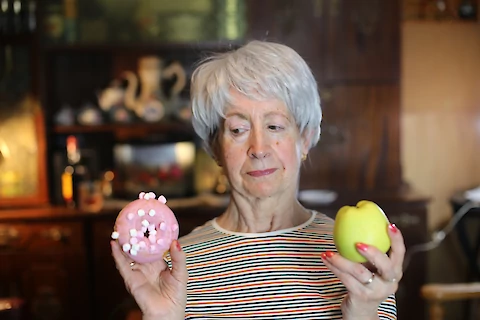
As we age, eating right becomes crucial for maintaining optimal health. Understanding what goes into your body is essential, especially regarding sweetener consumption. This article breaks down the difference between "good" and "bad" saccharides, giving you a clearer understanding of their sources and effects on your health. We don't provide medical advice but helpful information for better dietary decisions. This simple, informative sugar guide for seniors will help with healthier nutritional choices.
Sugar Basics
Sugar is nearly everything we eat, from fruits and vegetables to bread and dairy products. This sweetener is a type of carbohydrate that our bodies use for energy. The two kinds of saccharides, like fructose and lactose, are found inherently in foods like fruits and dairy. Manufacturers or anyone who cooks at home can also add sweeteners to foods and drinks during processing or preparation.
Bad Sweetening Agents
Added sugars, like those found in saccharin-enhanced beverages, candies, and baked goods, provide no nutritional value other than energy. These sugars can lead to weight gain and heart disease and even affect your memory, which is a particular concern for older adults.
Corn syrup is a common sweetener in sodas and processed foods. You should avoid corn syrup due to its high fructose content, which can lead to obesity and diabetes if consumed excessively.
Sweetener Alternatives
You might think sugar alternatives, such as artificial sweeteners, provide a healthier choice. Products like aspartame, sucralose, and saccharin taste more cloying than sugar but contain fewer or no calories. However, their long-term health effects remain a topic of ongoing research. While some health professionals suggest they may aid in weight management, others point to potential links with increased risk of metabolic diseases. Therefore, moderation is essential when using these sugar substitutes.
Healthy Saccharides
Good sugars, also known as natural sugars, are found in whole fruits that offer more than just sweetness. These fruits come with fiber, water, and various beneficial compounds. Consuming fruits can help reduce the risk of heart disease, kidney stones, and cancer. But remember, the key is whole fruits. Fruit juices, even those 100% made from fruit, lack fiber and may contain as much sugar as a soda.
Tips for Managing Sweetener Intake in Older Adults
If you often struggle to keep your sugar intake in check, here are a few simple and practical strategies to help you take control of your intake and maintain a healthy lifestyle.
- Begin by reading food labels to check for additives. Added sweeteners sometimes appear where you'd least expect, like in foods such as bread, soup, and salad dressing.
- Try incorporating more whole fruits into your meals and snacks instead of selecting processed foods.
- Small changes can make a difference over time, like reducing the sugar you add to your morning coffee.
- And, of course, it's crucial to consult with a healthcare professional before making significant dietary changes.
We're Here to Help
Understanding the difference between good and bad sugars is crucial in ensuring a healthier lifestyle for older adults. The drive to better health is about controlling and choosing the right kind through our sugar guide for seniors.
If you need help or guidance on personal care or health-related issues in Cayce, Columbia, Irmo, Lexington, or West Columbia, don't hesitate to contact us at Senior Helpers Lexington, SC. We would love to discuss our services for elderly loved ones and their caregivers, such as Personal Care and Chronic Disease Care.